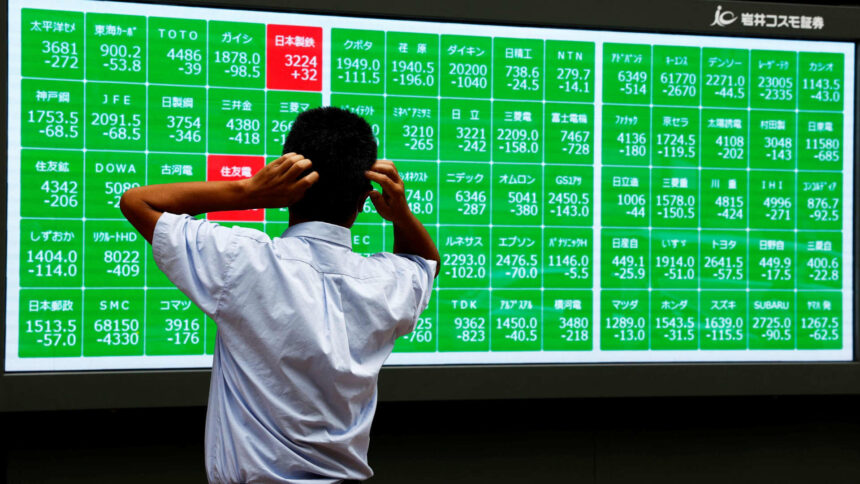Japanese equities are reaching exceptional heights, driven by consistent inflows from foreign investors and effective governance reforms. Despite facing potential risks, including political instability and fluctuations in the yen or U.S. markets, analysts suggest that any disruptions may present new buying opportunities rather than curtailing the ongoing rally.
The recent surge saw the Nikkei 225 and broader Topix indexes experience temporary dips following the Bank of Japan’s unexpected decision to begin selling its extensive ETF holdings. However, shares quickly bounced back. While some investors view this rally as having peaked, analysts maintain that the momentum is based on solid fundamentals and has room for growth.
The upward trajectory of Japanese stocks gained momentum over the summer months, particularly following a U.S.–Japan trade agreement finalized in September. This development restored investor confidence in exporters who had previously suffered due to tariff uncertainties, leading to significant gains in the automotive, semiconductor, and artificial intelligence sectors. “Initially, the rally was broad-based, but it has increasingly focused on mid-income value companies and tech firms in the last few months, leading to new records,” commented Kei Okamura, a portfolio manager at Neuberger Berman.
Deeper economic shifts also play a critical role in this resurgence. Japan appears to be emerging from decades of deflation, with real wages and household consumption showing signs of recovery. Inflation rates are stabilizing around the Bank of Japan’s target of 2%, and the yen has recovered significantly from last year’s dramatic declines.
Underlying the rally is a notable relative value. The price-earnings ratios for the Nikkei 225 and Topix are currently 23.01 and 17.46, respectively, compared to the S&P 500’s 28.54. This valuation discrepancy has attracted global investors looking for better returns. Activist campaigns throughout 2023 and 2024 have compelled companies, particularly cash-rich firms, to more judiciously deploy their capital. An example is U.K.-based Palliser Capital’s significant investment in Tokyo Tatemono, pushing for efficiency in a company seen as undervalued.
While concerns about Japan’s political landscape remain — particularly given the recent resignation of Prime Minister Shigeru Ishiba — analysts like Okamura believe that the current market momentum is largely independent of political dynamics. As the ruling Liberal Democratic Party gears up for a leadership contest with frontrunners like Sanae Takaichi and Shinjiro Koizumi, Okamura suggests that either candidate could support further corporate governance and capital management reforms.
Despite worries regarding high valuations, analysts assert that the broader Topix remains undervalued and that many domestically focused companies are poised for growth and recognition by investors. They argue that the overall market is not overheated, with fundamentals still catching up to valuations and a possible sector rotation that could enhance gains.
Various institutions remain optimistic, predicting continued growth for Japanese equities. Widespread corporate reforms and a solid economic backdrop provide additional encouragement. Lombard Odier anticipates steady GDP growth and improved corporate earnings, even as political uncertainties and inflationary pressures loom on the horizon.
The Tokyo Stock Exchange’s push for better capital efficiency and the unwinding of cross-shareholdings reflects ongoing governance reform efforts, while changing inheritance tax rules contribute to increased market liquidity as founding families sell stakes.
Nevertheless, the looming global risks, including potential downturns in U.S. markets or another significant yen appreciation, have analysts urging caution. However, they frame any such developments as potential entry points for investors rather than threats to the current rally’s sustainability.







